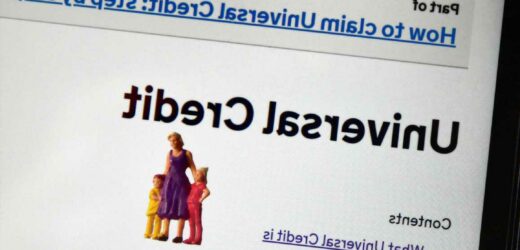SIX million Brits are set to see their Universal Credit payments slashed when the benefits boost comes to an end next week.
The government introduced a £20 a week raise to help claimants through the coronavirus pandemic, but it will be scrapped from October 6.
The Universal Credit uplift is not being made permanent despite widespread calls to leave it in place, with critics calling it the biggest overnight benefits cut since WWII.
Here we explain when the cut to Universal Credit will take place,how it will affect benefit payments and how much money anyone claiming stands to lose out on.
What is the Universal Credit uplift?
The government first announced at the start of the pandemic that Brits claiming Universal Credit would get an "uplift" to their benefit payments.
The boost of £20 a week started in April 2020 and was designed to help people through the pandemic, which drastically hit people's finances.
The benefit boost increased the standard allowance for Universal Credit – which is the amount that everyone is entitled to if they're accepted on Universal Credit.
At the time, it increased monthly Universal Credit payments from £317.82 to £409.89, for a single Universal Credit claimant, who is 25 or older.
The standard allowance is set at different levels for those who are under 25 or for those who are in a couple.
The increase in payments applied to all new and existing Universal Credit claimants.
The number of people claiming Universal Credit has shot up to six million because of the pandemic.
It means millions of Brits on UC have only received payments with the uplift in place.
When the temporary boost was first announced it was expected to last for 12 months.
That means it was due to end in April 2021, but the ongoing pandemic and lockdown restrictions led to an extension of the uplift.
What to do if you have problems claiming Universal Credit
IF you’re experiencing trouble applying for your Universal Credit, or the payments just don’t cover costs, here are your options:
- Apply for an advance – Claimants are able to get some cash within five days rather than waiting weeks for their first payment. But it's a loan which means the repayments will be automatically deducted from your future Universal Credit payout.
- Alternative Payment Arrangements – If you're falling behind on rent, you or your landlord may be able to apply for an APA which will get your payment sent directly to your landlord. You might also be able to change your payments to get them more frequently, or you can split the payments if you're part of a couple.
- Budgeting Advance – You may be able to get help from the Government for emergency household costs of up to £348 if you're single, £464 if you're part of a couple or £812 if you have children. These are only in cases like your cooker breaking down or for help getting a job. You'll have to repay the advance through your regular Universal Credit payments. You'll still have to repay the loan, even if you stop claiming for Universal Credit.
- Cut your Council Tax – You might be able to get a discount on your Council Tax by applying for a Council Tax Reduction. Alternatively, you might be entitled to Discretionary Housing Payments to help cover your rent.
- Foodbanks – If you're really hard up and struggling to buy food and toiletries, you can find your local foodbank who will provide you with help for free. You can find your nearest one on the Trussell Trust website.
When will the Universal Credit uplift end?
The boost to benefits was extended in March 2021, just before it was originally due to end.
Chancellor Rishi Sunak said in his Budget that the uplift will continue for a further six months.
That means claimants have continued to get £20 a week extra after the original end date of April 2021.
Claimants will continue to get the boost until October 6, 2021.
The exact date the payment will end for each claimant will depend on the day they get their Universal Credit payment, but is expected to fall between early October and early November.
Despite calls to extend the extra payment, the government has confirmed that the uplift will end on this date and there will not be an extension.
Campaign groups, such as Citizens Advice, Turn2Us and Stepchange, have warned that removing the uplift would push thousands of families further into debt.
MPs have called for Universal Credit £20 a week boost to be made permanent.
How much Universal Credit will I lose?
Universal Credit claimants will lose £20 a week from their benefit payments and over the year that adds up to a loss of £1,040.
Here's how much money you'll lose from your monthly payments, with rates for the 2021-22 tax year, before and after the uplift:
- For those single and aged under 25, the standard allowance with the uplift is £344 – after the uplift is cut that will fall to £257.33
- For those single and aged 25 or over, the standard allowance with the uplift is £411.51 – after the uplift is cut that will fall to £324.84
- For joint claimants both under 25, the standard allowance with the uplift is £490.60 (for both) – after the uplift is cut that will fall to £403.93
- For joint claimants where one or both are 25 or over, the standard allowance with the uplift is £596.58 (for both) – after the uplift is cut that will fall to £509.91
Millions on Universal Credit have not yet been sent letters warning about the benefits cut.
When the welfare slashes are finalised by the government, claimants will get a notification through their Universal Credit journals and statements online, while letters will go out to the most vulnerable.
Universal Credit claimants who are self-employed face another blow to income on top of losing the £20 a week uplift.
Here's how to get extra cash worth up to £1,100 when Universal Credit £20 boost ends.
Martin Lewis has urged Brits who were turned down for Universal Credit last year to re-apply now.
We pay for your stories!
Do you have a story for The Sun Online Money team?
Email us at [email protected]
Source: Read Full Article



